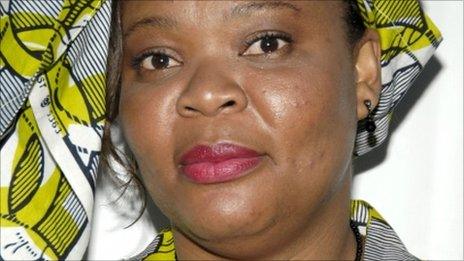Africa's Nobel Peace Prize winners
- Published
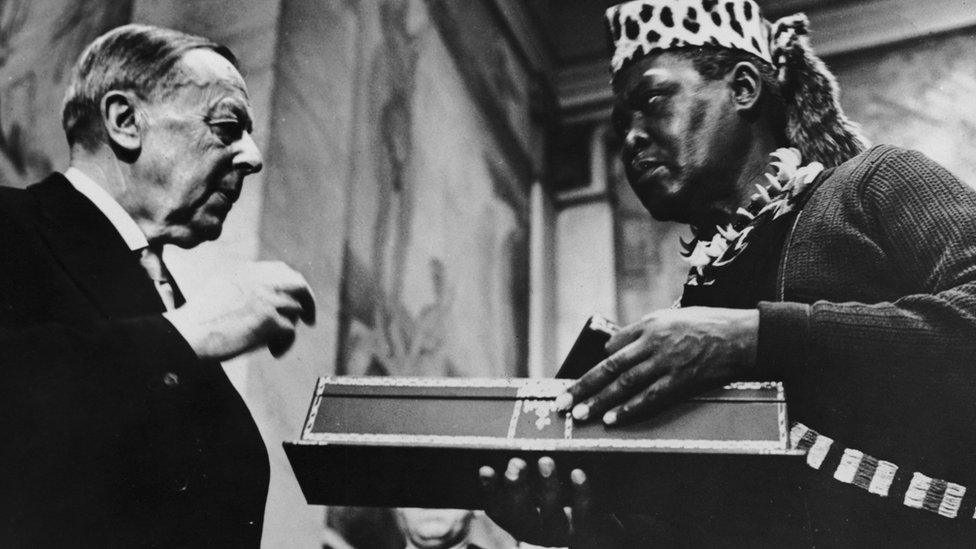
Albert Lutuli was the first African peace laureate for advocating non-violent resistance to racial discrimination in South Africa
The Nobel Peace Prize, first awarded in 1901, has this year gone to four civil society groups in Tunisia.
The winner is selected by the Norwegian Nobel Committee, on behalf of Swedish industrialist Alfred Nobel's estate, and awarded to whoever "shall have done the most or the best work for fraternity between nations, for the abolition or reduction of standing armies and for the holding and promotion of peace congresses".
Over the years, 10 individuals from Africa have been honoured for their efforts:

1960 South Africa's Albert Lutuli, external, president of the African National Congress:
"The Nobel Committee for the second time chose a prize-winner who was being persecuted by his own authorities"

1978 Egypt's President Anwar al-Sadat, external shared with Israeli Prime Minister Menachem Begin:
"After having taken the initiative in negotiating a peace treaty between the two countries"

1984 South Africa's Desmond Tutu, external, secretary-general of the South African Council of Churches - now emeritus Archbishop of Cape Town:
"The Committee has attached importance to Desmond Tutu's role as a unifying leader figure in the campaign to resolve the problem of apartheid in South Africa"

1993 South Africa's anti-apartheid leader Nelson Mandela, external, who became the country's first democratically elected president, and apartheid President FW de Klerk, external:
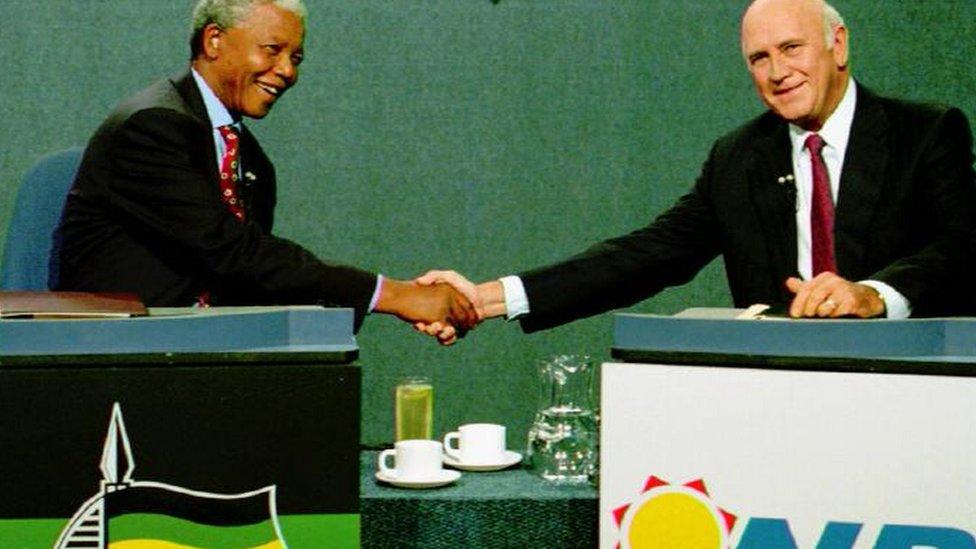
Nelson Mandela spent 27 years in jail under apatheid
"For their work for the peaceful termination of the apartheid regime, and for laying the foundations for a new democratic South Africa"

2001 Ghana's Kofi Annan, external, UN secretary general, shared with the United Nations:
"For their work for a better organised and more peaceful world"

2004 Kenya's Wangari Maathai, external, environmentalist and founder of the Green Belt Movement:
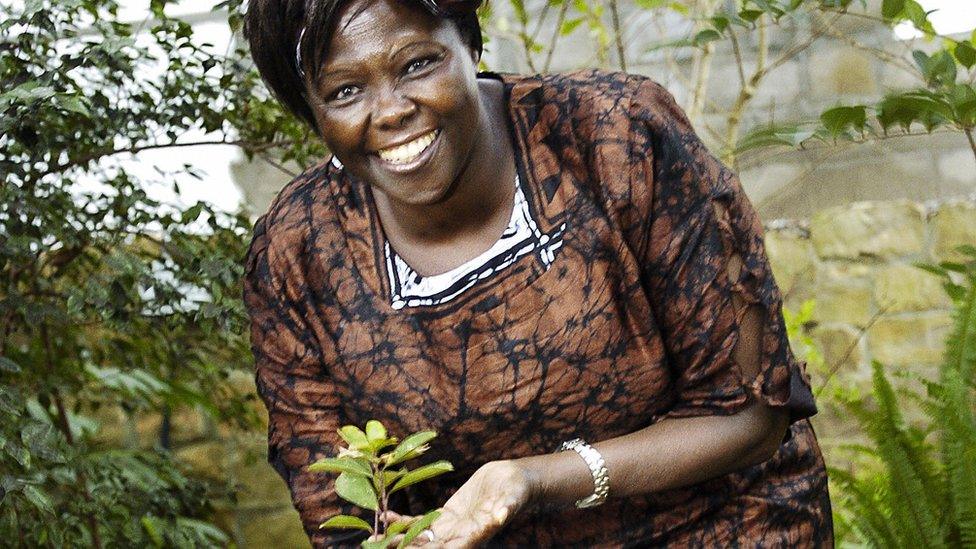
Wangari Maathai was Africa's first female peace laureate
"For her contribution to sustainable development, democracy and peace"

2005 Egypt's Mohamed ElBaradei, external, head of the UN's nuclear watchdog, shared with the International Atomic Energy Agency (IAEA):
"For their efforts to prevent nuclear energy from being used for military purposes and to ensure that nuclear energy for peaceful purposes is used in the safest possible way"

2011 Liberia's President Ellen Johnson Sirleaf, external and peace activist Leymah Gbowee, external, shared with Tawakkol Karman from Yemen:
"For their non-violent struggle for the safety of women and for women's rights to full participation in peace-building work"

2015 Tunisia's National Dialogue Quartet, external, a group of four organisations: the Tunisian General Labour Union, the Tunisian Confederation of Industry, Trade and Handicrafts, the Tunisian Human Rights League, and the Tunisian Order of Lawyers:
"For its decisive contribution to the building of a pluralistic democracy in Tunisia in the wake of the Jasmine Revolution of 2011."
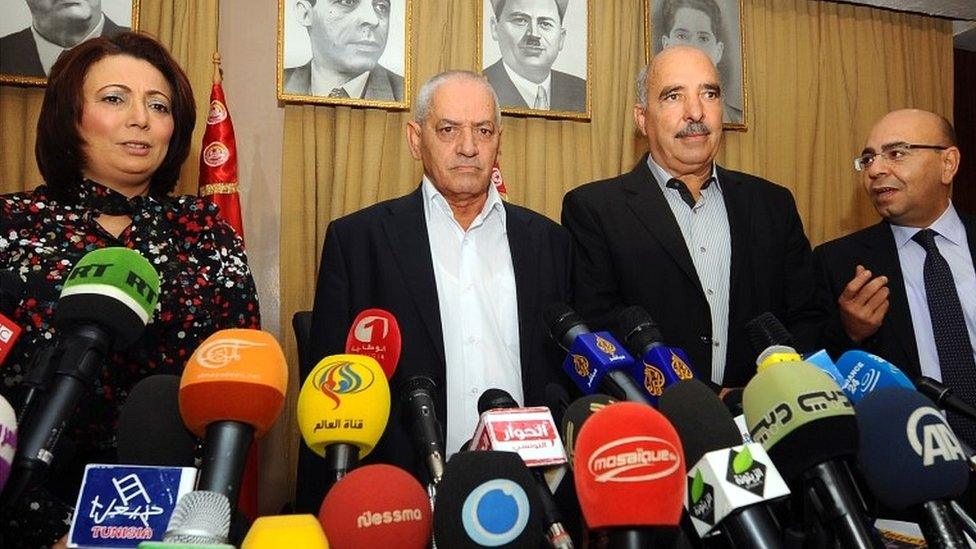
The quartet is made up of mediators from four Tunisian organisations
- Published7 October 2015
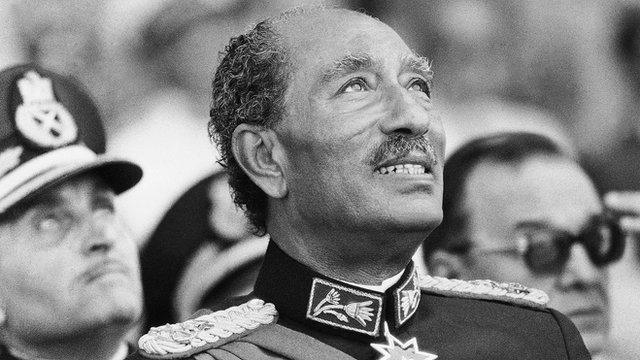
- Published22 July 2010
- Published15 August 2013
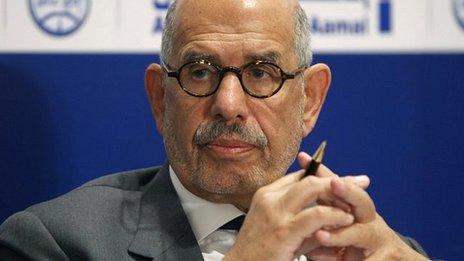
- Published5 December 2013
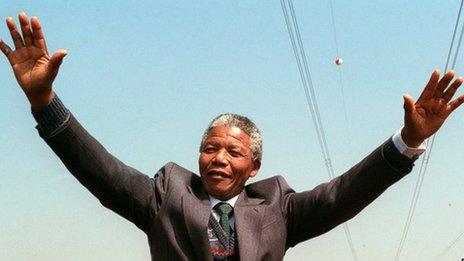
- Published5 December 2013
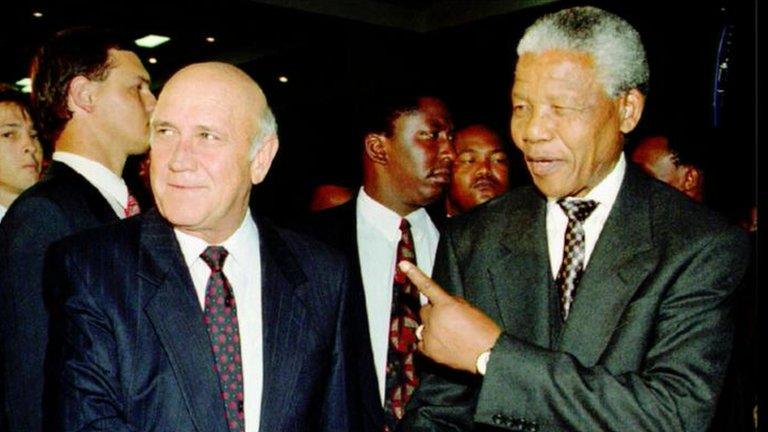
- Published26 September 2011
- Published7 October 2011
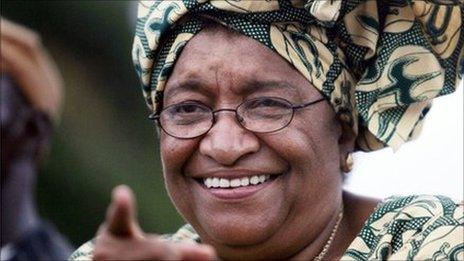
- Published7 October 2011
